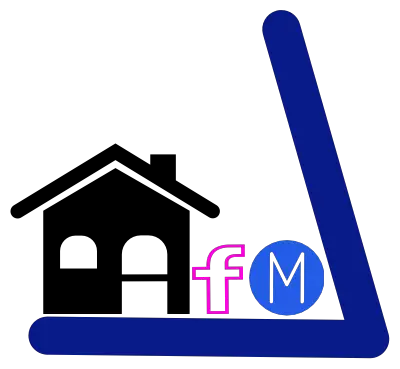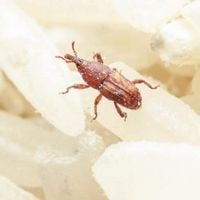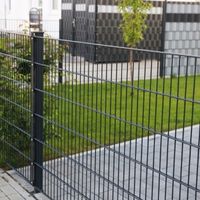Does Mulch Attract Termites
Does mulch attract termites? Mulches can harbor bugs and insects, including termites. The composition of mulches differs in different weathers and regions and termite behavior changes accordingly.
Therefore, to avoid termite invasion, using mulchy is not the right option. There are several nasty insects like spiders that might find the habitat suitable for breeding there.
In this guide, we will highlight some of the best mulches that will keep your house safe from termites but at the same time have others insects and pests away so you don’t have an insect-filled garden.
Does Mulch Attract Termites
While we all want our lawn to look its best, a lot of us don’t stop and think about what it takes to get that grass to be perfect.
We might not realize how important mulching is in the process – but landscapers always choose the right type of mulch they need to use based on their intended purpose.
If you want your grass to look (and stay!) greener around your home, there are certain types of mulch products like pine straw and nutgrass that will do just that.
Mulches can supply nutrients to keep seeds from growing, such as tree saplings or crabgrass – helping to keep them away from other areas with stronger grass growth.
Certain types of mulches also help act as an insulator for cold weather conditions when used occasionally all year long – which is especially important for areas of higher elevation or colder climates!
Having the right kind of quality happens when you choose the correct type of product suited specifically for your company.
Here are the mulches that attract termites
- Pine Straw Mulch.
- Pine Bark Mulch.
- Softwood Mulch.
1. Cedar Mulch

Cedar mulch comes from the shredded bark of Eastern Red Cedar trees and it lasts for a long while.
It’s made up of terpenes which are natural chemicals that act as a deterrent to termites and other bugs who like to chomp on things!
The cedar also smells nice and has an appealing red color that makes your garden or yard look even more beautiful.
In addition, you know cedar mulch is good because it doesn’t hurt plants – it actually helps them in many ways by preserving moisture levels in the soil around their roots.
Controlling temperature so they get just the right amount of warmth they need, and maintaining the fertility of their soil so they can grow to be strong, healthy plants!
Plus, many people like using cedar mulch instead of regular types because it lasts longer – this one lasts for 5-7 years before you have to replace it.
2. Cypress Heartwood Mulch

One issue you may run into when using cedar mulch for your garden or around the home is that it may attract a pesky unwanted guest – termites.
This type of mulch consists primarily of cypress heartwood, which has been known to attract insects and other unwanted pests like termites.
The termite repelling factor in this mulch comes from its antifungal property (you should note that there is no scientific evidence to back up this claim).
You can relax knowing there won’t be any unwelcome bugs or critters with this kind of mulch as it takes years to breakdown. I’d recommend having some on hand.
3. Melaleuca Mulch

Melaleuca mulch is one of many types of good looking, enjoyable smelling, and useful mulch! But there are times when this type of mulch may not be for you.
If you prefer to use a product that does not require a lot of organic matter then it could pose as a potential disadvantage. This type of material also has a chance to repel a few people because of its unique smell.
Another con is that this melaleuca mulch can cost more than other types of wood mulches which will likely affect your budget if you have lots of work to do!
Personally, I find this kind of mulch to be great; but like anything in life there’s advantages and disadvantages involved.
So it’s just up to you to figure out if this material is worth the extra money or if it won’t even serve its purpose correctly in your given area.
4. Licorice Root Mulch

Licorice-root mulch is an excellent choice for any eco-friendly gardener, wildlife proprietor or someone who wishes to reduce reliance on harmful pesticides.
This mulch maintains a healthy pH level that reduces the likelihood of blights and rusts spreading across your garden’s borders which makes it ideal for protecting plants even after they’ve been transplanted.
Although using this type of mulch often stretches one’s budget, you’ll likely find that its benefits far outweigh the costs involved.
Thanks to the fact that it contains 13 nutrients used by people and animals alike to achieve their healthiest possible states.
5. Redwood Mulch

Redwood mulch is hardwood mulch which makes it an ideal option if you want to keep your plants protected from the most commonly occurring pest – termites.
It contains resins that keep those little creatures away and can help give your plants what they need during times of drought.
Redwood mulch helps retain moisture better than other types of hardwood materials, meaning that it loses little to no water through evaporation.
One downside to redwood mulch is that its durability time can be relatively short when compared to other types of hardwood materials like cypress or cedar trees, as well as pine tree needles, where mulches can last upwards of 3 years before falling apart due to decay.
So while redwood won’t last quite as long as these other options, one benefit that comes with red wood mulch being less expensive than some other options.
Why Termites Avoid Mulches?
All types of termites dig tunnels through soil and wood in order to stay active and patrol their territory. Termites bore through the wood they consume, eating it from the inside out.
Termites are dependent on moisture and cellulose from wood for sustenance; these two things comprise their food source. The mulches listed above lack both of these things entirely!
Also, mulches can be thought of as small wood chips that come from freshly cut trees. These tiny fragments do not provide enough space for a termite colony to descend far below the surface for long periods of time or build large networked tunnels fast enough.
So, these best mulches are neither nutritious nor worth drilling in for the termites.
Conclusion
Does mulch attract termites. In this guide, you learned why these mulches repel termites. And how to use these mulches, correctly. Remember subterranean termites gain access to your home from underground. And most of the times, the source of termites to your home is your yard.
Cedar wood mulch, cypress heartwood mulch, and melaleuca mulch are hardwood mulches, and they last longer than any other mulches as they’re rich in cellulose which isn’t as readily available in other kinds of wood. Firewood isn’t a good kind of wood material to use around your home either because it’s also full of moisture buttermilk and cellulose that attracts termites.
Related Posts






